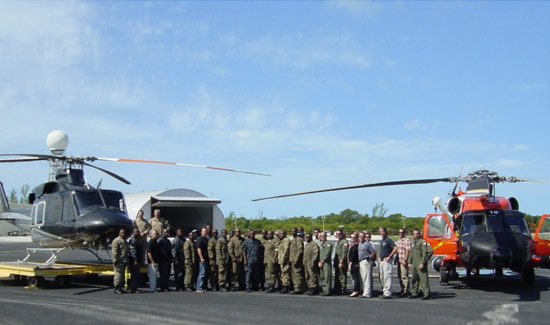 A senior U.S. State Department official is predicting that the Caribbean will likely experience a surge in drug-trafficking activity by 2015 because criminal operations are slowly moving out of parts of Latin America due to an international crackdown.
A senior U.S. State Department official is predicting that the Caribbean will likely experience a surge in drug-trafficking activity by 2015 because criminal operations are slowly moving out of parts of Latin America due to an international crackdown.
In an interview with The Associated Press William Brownfield, assistant secretary of state for international narcotics and law enforcement, said he thinks drug traffickers pushed out of Central America, Mexico and South America will target the Caribbean because the region is spacious and it allows them to remain undercover and take advantage of weak law enforcement in certain countries.
“What are they going to do, all close down and run beach cabanas in Mexico and Colombia? I don’t think so,” he said. “Logic suggests they will move to the old routes of the 70s and 80s. Those people are still around.”
In the 1980s, Carlos Lehder, one of the founders of the Medellin Cartel in Columbian, ran a major drug operation out of Norman’s Cay, Exuma.
Brownfield gave the interview during a visit to Puerto Rico, where he was to discuss the Caribbean Basin Security Initiative program.
The program exists to boost regional security with the help of money from the U.S.
Brownfield’s prediction should be worrying to local policymakers. The Bahamas has had several murder records in recent years with the latest record being set in 2011, and the second highest murder total occurring last year.
Many of these murders are drug related.
Former street gangs have evolved into organized crime groups who settle disputes with bullets.
An increased flow of drugs and the presence of hemispheric drug organizations here would worsen an already bad situation.
While the U.S. has helped The Bahamas significantly with logistics and equipment in the drug fight, the administration of justice in The Bahamas is weak.
The Bahamian criminal justice system is slow and disorganized. While many are arrested, confusion and delay often result after this point.
The U.S. has an efficient federal criminal justice system. Many of its state jurisdictions also are models of efficiency.
It might be useful if assistance can be given – if the Bahamian government accepts it – regarding the set-up and administration of a proper criminal justice system from investigation and arrest, to prosecution, trial and detention.
When one or more parts of the justice system are ineffective or inefficient, the entire system falters.
For any assistance to take hold, of course, local lawmakers have to want it to. The crime problem in The Bahamas is now a major concern for many Bahamians.
We should welcome reasonable help from friends to fix our problems.
Editorial, The Freeport News



